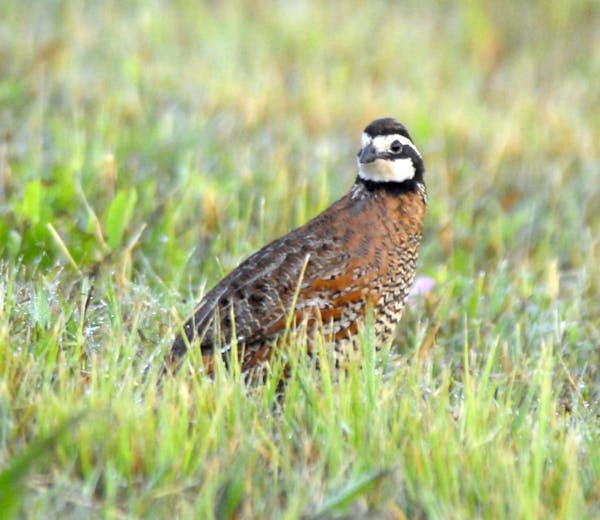Tastes like chicken? It does not apply to pheasant and quail. These birds have a richer, gamier flavor and they can be tricky to cook.
"In France, every hunter either has a friend who is a chef or a spouse who can cook," said Vincent Francoual, of Vincent A Restaurant. Growing up in southwest France with an uncle who loved to hunt, Francoual understands game.
"It's different here. I'm surprised that many of my American friends who hunt don't hang their game," he said. "This enriches the flavor of the meat and helps keep it from becoming tough and dry. I recommend doing this, even with farm-raised birds," he says, noting the differences between farm-raised and wild birds, that are leaner and more complex tasting.
"Pheasant is a really delicate meat," he noted. "The different parts of the bird cook differently. The legs and thighs take longer, while the breast takes less time and can dry out quickly." Francoual recommends cooking dark and white parts separately. "I braise the legs and thighs in Belgian Lambic [raspberry beer] or red wine, and cook them using low heat for a long time. The breast I pan-sear in butter," he said, and offered a warning about overcooking it. "It's best when it's still pink." To keep it moist, he suggests that the breast be "barded," that is, wrapping it in bacon or pancetta.
As for quail, the meat of these tiny birds is darker and the flavor more intense. Small and succulent, they are well-suited to the grill. Francoual sometimes marinates them first, often in gin, juniper and olive oil. Wild game, a seasonal specialty, is embraced throughout France. "Chefs appreciate its complex and nuanced flavor," he said.
For the home cook
• Both game farm birds and wild game have "gamier" flavor than chicken and substantially less fat. The breast meat cooks quickly, while the dark meat requires more time.
• The French hang their game birds drawn but unplucked, in a cool place, from a day to a week. Enzymes in the muscle cells are released when the animals are hung that break down the surrounding tissue, making it more flavorful and tender when cooked.
• Freeze birds after they are drawn, hung and skinned or plucked, wrapped tightly in plastic, then double-wrapped in freezer paper and frozen at 15 degrees or lower.
• Thaw frozen game in the refrigerator overnight. Or submerge in their wrapping, in cold water, changing the water every 30 minutes or so.
• Bard the meat, which means to lay a meaty piece of bacon or pancetta over the bird's breasts. This adds flavor and helps keep the birds moist.
• Wild birds are much leaner and easier to overcook than domestic birds.
• Many hunters brine their game birds before cooking. The point is to soak the birds in a mix of salt and water; the salt plumps up the muscle fibers, allowing them to absorb water. This changes the structure of the proteins so that they retain the water and stay moist as they cook. Salt intensifies the flavor. Brine birds before cooking (and after they are thawed). Rinse and pat dry thoroughly before you cook. Basic brine: 4 quarts water to 1 cup kosher salt. Submerge the birds in the solution for four hours or overnight, covered, in the refrigerator.
Beth Dooley, of Minneapolis, is the author of the new "The Northern Heartland Kitchen" (University of Minnesota Press).
